Many people have heard of the Japanese creature known as the gyaru (Japanese pronunciation of "gal"). They are born as normal humans, but show their true colors around adolescence as their hair and eyes grow lighter, their skin encases itself in makeup, and their style of dress becomes more and more extravagant. Skirts shorten and collars loosen.These transforming females allow their nails to grown long and discolor, even sometimes protruding jewel-like bumps. Their mating traditional dance, called para para, mesmerizes generations of curious onlookers. These are gyaru, the creature native to the concrete jungles of Tokyo.
There's so much to talk about in regards to this odd specimen, but one thing that I want to take a look at most specifically is their own ritualistic language (gyaru-go) which, like their fashion, morphs rapidly and drastically. Have you ever wondered about their language and what they're saying? Let's get you up to date!
For The Uninitiated-What actually is a Gyaru?
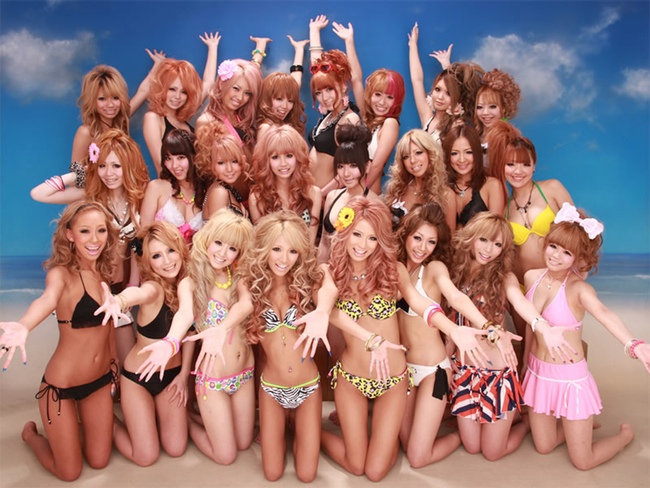
"Gyaru" refers to a Japanese fashion and social sub-culture of girls who follow a certain style of clothes, hair, makeup, and activities. They're kind of the valley-girls of Japan, some would say. Within the gyaru culture, there are countless sub-categories. The most famous are probably kogyaru (high school gyaru) and the shocking ganguro (known for their burned to a crisp beyond recognition skin.)
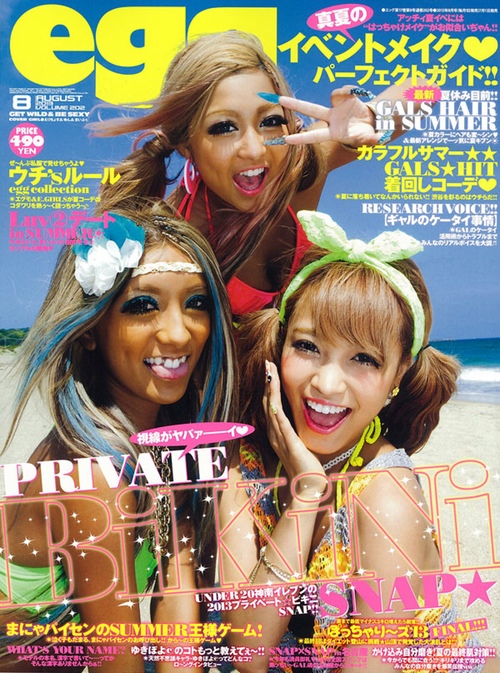
The magazine above (EGG) is one of the most popular magazines for gyaru. Note the light hair, dark skin, long nails, and heavy makeup.
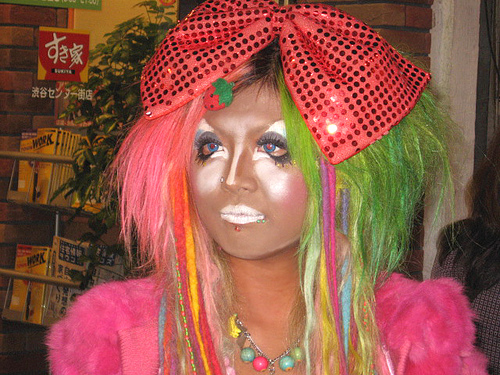
Now let's look at a ganguro of the 90's and early 2000's (above). Gyaru have since evolved, and very few ganguro exist these days. Whiter skin is in now, and the extremely dark tans are out. Most gyaru nowadays tend to go less for the shocking look and more for the overly-feminine look.
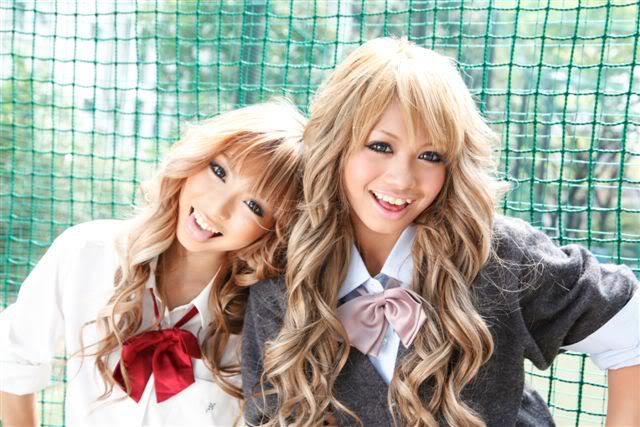
Kogyaru wear short skirts and loose socks with school uniforms (although loose socks are a bit passé as of recently). School uniforms are very much in for gyaru, even if they don't go to school anymore. In fact, many girls go to schools without uniforms so that they can wear fake uniforms that are way more chou kawaii than actual uniforms.
Gyaru in their natural habitat- in front of a camera (both professional and phone.)
And in their other natural habitat- the streets of Shibuya. These gyaru are all in their first year of high school- so 15-16 years old and kogyaru.
Gyaru also have a habit of sticking their tongues out in pictures. If you go through a gyaru magazine, you are bound to see many tongue poses. I feel like gyaru go for feminine-cute in their appearance, but sometimes try to defy classic Japanese femininity in their actions.
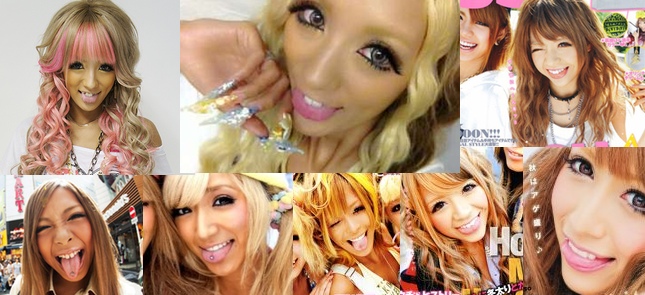
There's also the male form of Gyaru, called Gyaruo. They have their own magazine (Men's EGG) though they are fewer in number compared to their female counterpart.
Old Gyaru-go
Gyaru can't talk too much differently from the rest of the world right? Right? Well, turns out that gyaru tend to speak with their own silly slang thrown into their super-casual speech, which is enough to confuse the casual observer. So, what are some famous and time-old examples of gyaru-go? Here are some things that I've heard around the past couple of years.
Agepoyo あげぽよ
Age means to raise, and poyo doesn't really mean anything. But Agepoyo can be yelled when excitement is high. Kind of like yelling "YOLO", agepoyo can be an equivalent to "I'm so hyper right now omg! Agepoyo!" Coincidentally, the opposite of agepoyo is sagepoyo, often used jokingly. (Sage meaning "to lower"). Here's a video called "Agepoyo Summertime" to let you know how you can basically use agepoyo anytime for anything positive or happy.
Examples:
- けいすけからメール来た!アゲポヨ!
- I got a text from Keisuke! Agepoyo!
- いい天気ね!アゲポヨ!
- The weather is so nice! Agepoyo!
- 今夜はねない!アゲポヨ!
- I’m not sleeping tonight! Agepoyo!
Next time you're partying with your friends and start yelling YOLO at the top of your lungs, be sure to add an AGEPOYO! It will make your tenshon テンションMAX!
Torima とりま
Torima is a shortened version of toriaezu maa, which means "for the meantime, well…" You can use this word when you're planning things on the fly, like hanging out with your other gyaru friends or choreographing a para para dance.
Example:
- ゆきてぃんは遅刻よ。とりま、先に行こうかな
- Yuki-tin is running late. Well, for now let’s just go anyways.
Gyaru moji ギャル文字 (Gyaru text)
Who here remembers l33t? Well, instead of nerds, gyaru have basically made the Japanese equivalent (No, not goroawase, something much more complicated). Instead of typing the actual kana character, when using gyaru text, you use a different symbol that kind of looks like the character. These girls must have spent a LOT of time looking through foreign typefaces and symbols to find ones that are similar to kana.
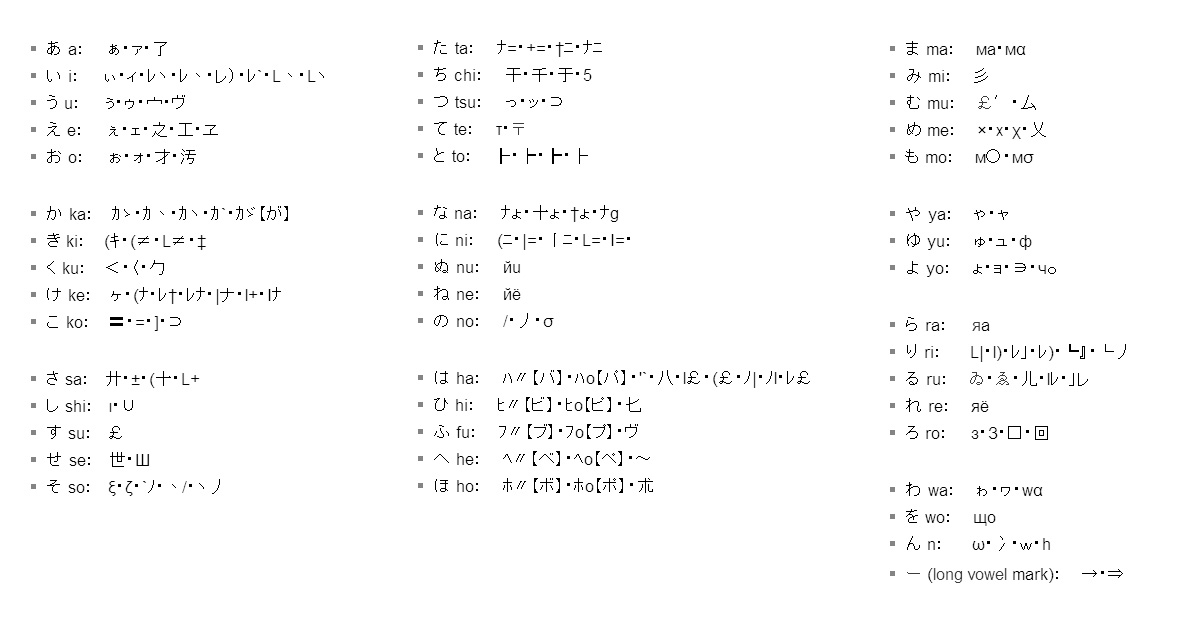
With kanji, it gets a little more complicated. Gyaru have taken the beautifully molded kanji, ripping them apart to radicals with their long sharp fingernails and using multiple characters next to each other that combine to make a single kanji. For example, 林 becomes 木木, 妹 becomes 女末, and 超 becomes 走召.
]яёぉ言売〆ゑ カゝレヽ?
So that's all old news gyaru-go. Of course, you like totally knew all of that already, cha? So what's new? What're the young people saying?
New Gyaru-go
Now that you know the history of gyaru-go, let's get onto what's hip and cool right now! These are some words you might hear coming from the bright gaggles of gyaru on the streets of Shibuya.
Yababa! やばば!
Do you remember yabai from my last Japanese slang article? It's basically an expression to yell when something is either really terrible or really great. Gyaru have made what was once their own their own again! Yababa is a twist on yabai. The more ba's you add to the end the more yabai it becomes.
Example:
- やばばばばば!つけま忘れちゃった!
- Omgggggg! I forgot my fake eyelashes!
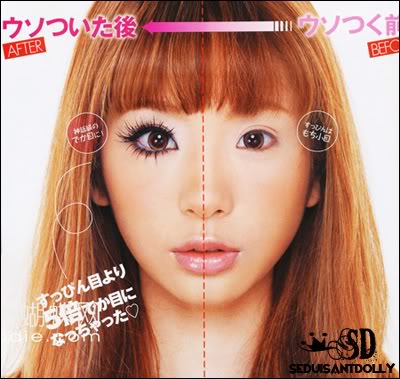
Although it may seem a little odd yelling "babababa" out, just embrace it for what it is and have fun with it. Remember, you can also yell "yababababa" when something is ridiculously cute, too!
Gekiokopunpunmaru 激怒ぷんぷん丸
Mad, angry, furious. These are a few words that describe anger in English. But what if you are harboring a different kind of angry? Well, lately, a new set of 6 words that describe a scale of anger have started to become known and used in the general public. Here's the chart that became famous through Japanese TV:
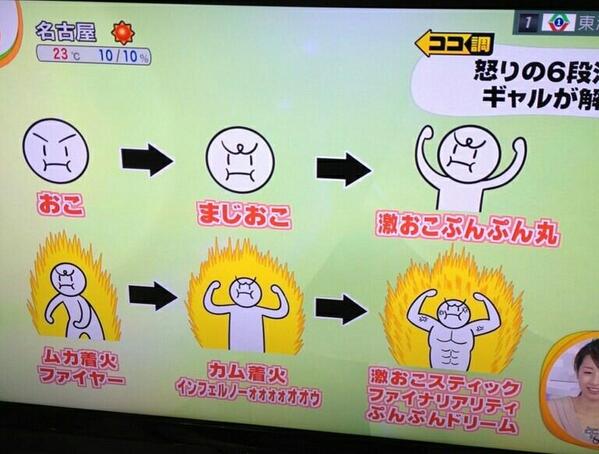
Let's break this madness down.
おこ: From the word Okoru, or to be mad. Just regular mad.
まじおこ: Do you remember maji from my last article on slang? Very mad.
激おこぷんぷん丸: One who looks mad in a cute fashion. Think pouting and cute-punching. This is the most famous one out of the bunch.
ムカ着火ファイヤー: Pretty darn mad. "Muka" comes from mukatsuku which means irritating and is more used as a way to say "piss off" and chakka means igniting or catching on fire. Essentially, so irritated that one catches on fire.
カム着火インフェルノーォォォォオオウ: Muka spelled backwards, ignition INFERNOOOOO. Let's just say you don't want to mess with someone this mad.
激おこスティックファイナリアリティぷんぷんドリーム: Nothing new to explain here. If someone gets to this level of mad, either someone is going to die or many things will break.
So next time you're asked by your gyaru friends how mad Sacchan's boyfriend was when he found her cheating on him, or how mad you were when your two-inch fake nail fell off, you can answer accurately! Geki oko punpun maru! That being said, if you ever say this nobody will really take you seriously. It's a kind of "I'm mad but not really but maybe I am" sort of angry, if you catch my drift.
The chart above also started a meme where people have been inserting their favorite characters into each anger category, sometimes making their own! Here are some examples:
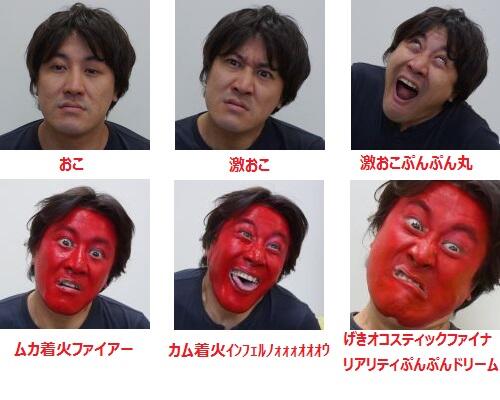
This takes dedication.
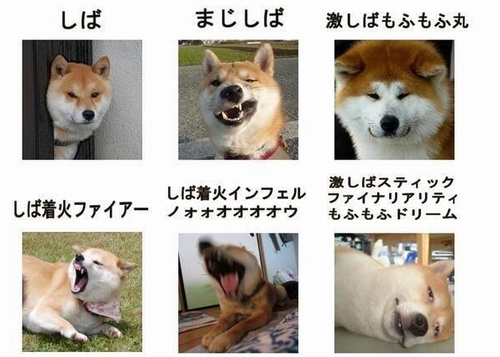
Shiba, majishiba, gekishiba mofumofu maru, shiba chakka fire, shiba chakka inferno, geki shiba stick final reality mofumofu dream.
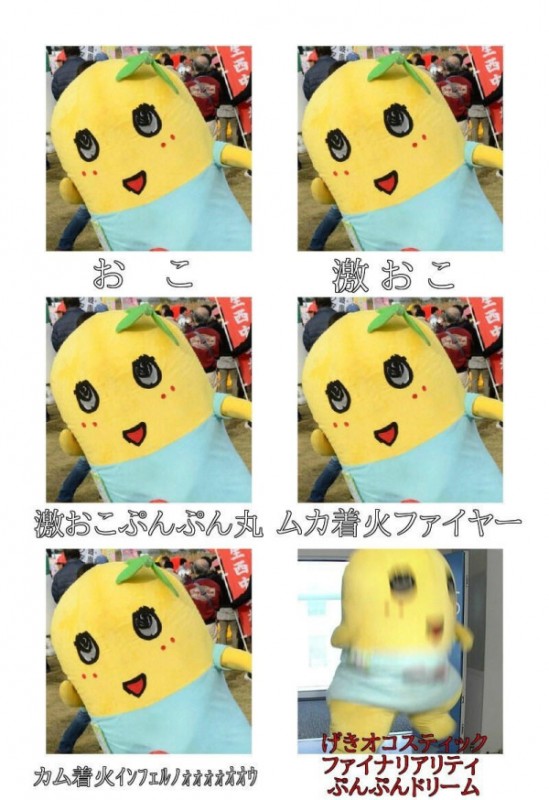
Yuru-chara funasshi wants his say too! After all, he recently won first place in the national contest for favorite local character!
Yaguru ヤグる
Yaguru means to be caught cheating on one's boyfriend. Interestingly, the passive form of this word, "yagurareru" means to catch your boyfriend or girlfriend cheating, making the active and passive forms switch places.
Example:
- やばばばばばば!山田とデートの途中で彼氏にヤグっちゃった!
- Omgomgomgomg! When I was in the middle of a date with Yamada, my boyfriend caught me cheating!
KS
KS is when someone reads your message on LINE but doesn't respond to it either because they forgot or they're ignoring you. Usually used as a verb, KS stands for kidoku suruu 既読スルー. It really should be KT for "kidoku through", but English is typically not a gyaru's strong point. I know that I accidentally KS people quite a bit just because of my scattered brain, but I've also been purposely KS'ed before.
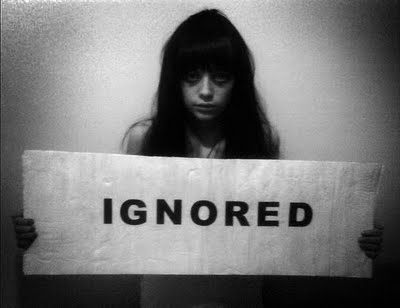
Example:
- みかみかにあそぼーってLINEしたけどKSされた!
- I asked Mikamika to hangout with me on line, but she KS’d me!
Any Gyaru out There?
Are you interested in gyaru culture now? Magazines like EGG and PopTeen should be pointers for style, as well as the internet of course. There are countless para para tutorial videos on Youtube, as well as a para para arcade game (similar to DDR) that is rare, but has been seen by human eyes before.
I know that when I went to my high school in Japan as an exchange student, there were budding gyaru everywhere around me. If only I had known these words earlier, maybe I could have won over their favor.
